7 die as Cyclone Mora crosses coastal area
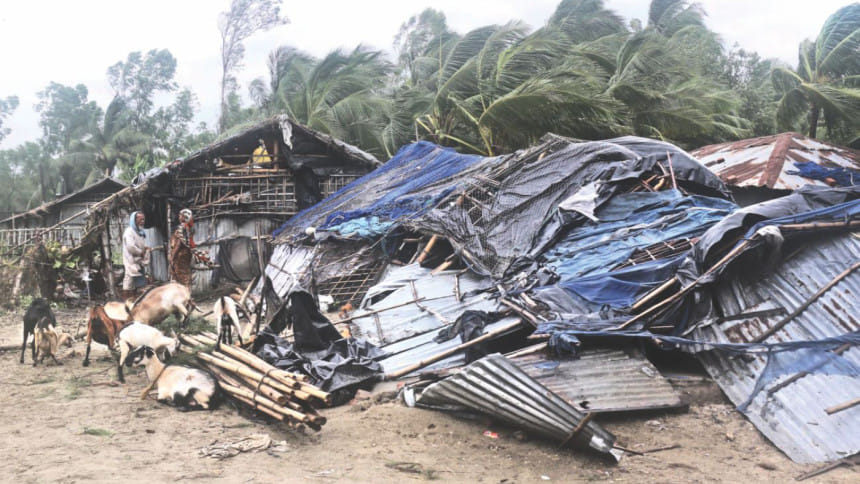
Owing largely to preparedness, adequate precautionary measures, and a weaker than expected storm, cyclone Mora had not had the devastating impact people apprehended.
Yet, the damage was considerable.
It killed seven people in Cox's Bazar, Rangamati and Bandarban after it made landfall and weakened yesterday morning. Mora flattened and damaged thousands of thatched houses, uprooted trees and caused breaches in embankments flooding many villages in Chittagong region.
As Mora was forming the in the Bay earlier this month, it caused excessive rainfall in Sri Lanka triggering landslides that claimed dozens of lives. The floods there have so far killed 180 people.
Cox's Bazar Deputy Commissioner Ali Hossain said due to their preparedness, precautionary measures and no storm surges, the loss of life was lower than they had feared. Around 20,000 homes had been damaged in his district.
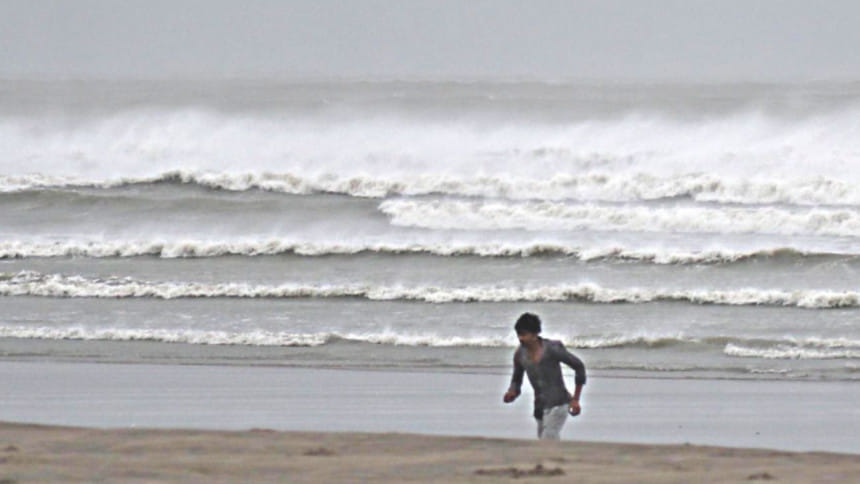
Yesterday, Bangladesh experienced thunderstorms and rain due to Mora, which crossed into India around 2:00pm.
Operation of flights and water transports resumed around noon when the Met office lowered their highest danger signal, “10”, which it had issued for maritime ports in Chittagong and Cox's Bazar.
It requested cautionary signal “3”, which means water transports could operate near the shores.
The people who had taken refuge in storm shelters had been asked to return to their homes.
"The danger is over as the cyclone has crossed Bangladesh territory. We requested all to go back home from cyclone shelters," Shamsuddin Ahmed, director of the Bangladesh Department of Meteorology, told The Daily Star around 2:00pm yesterday.
Dhaka experienced daylong drizzles as the Met office had forecast and the heat wave that had been sweeping over the country subsided.
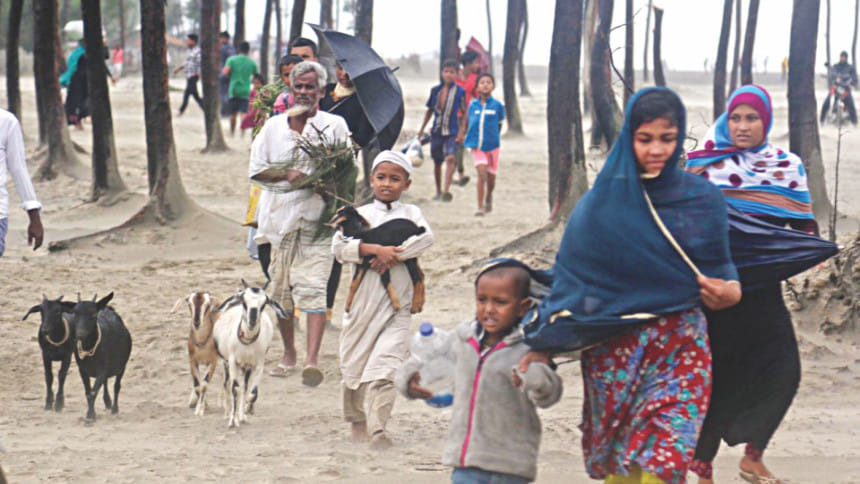
WORST HIT
Mora made landfall near Kutubdia of Cox's Bazar around 6:00am. It had wind gusts up to 128kph.
Our correspondent reports that the wind had picked up after 3:00am and had died down around afternoon. The rain became moderate from heavy.
In Cox's Bazar town, the storm was at its strongest around 9:00am.
Two people died in Chakaria upazila, one was hit by a tree while the other got buried under a collapsed house. Additional Deputy Commissioner Kazi Abdur Rahman of the district identified them as Rahmat Ullah, 50, and Sayera Khatun, 60.
Ten-year-old Sahina Akhter died when a tree fell on her in Islamabad union of Cox's Bazar sadar, said Upazila Nirbahi Officer Nazrul Islam.
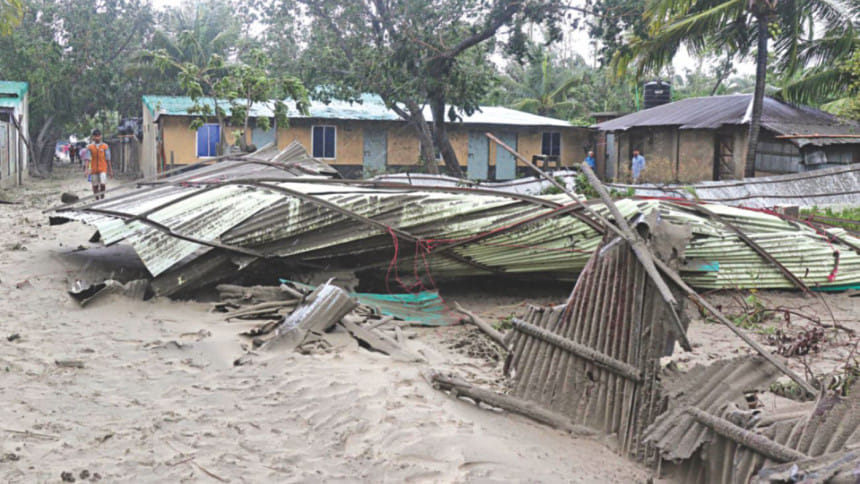
Abdul Hakim Sawdagar, 55, of Notunghona village in Pekua upazila of Cox's Bazar died when gusty winds caused him to hit a wall. He was on his way to a cyclone shelter when his head hit the wall late Monday night.
Mariam Begum, 55, died of heart attack at a cyclone shelter in Cox's Bazar Sadar, said Ruhul Amin, divisional commissioner of Chittagong.
Hazera Begum, 40, and Mahima Akhter, 13, died when trees fell on them in Rangamati sadar around 11:30am, our Rangamati correspondent reports quoting district Civil Surgeon Shaheed Talukder.
In Bandarban, farmer Casing Thoai Marma, 40, died when a tree fell on him in Lama upazila, reports our correspondent there quoting locals.
In Moheshkhali upazila, around 2,000 houses were damaged in Dhalghata union and around 700 houses in Kutubjong union. Two villages were inundated in Dhalghata, said Assistant Commissioner (Land) Bibhishan Kanti Chakma, who was the acting UNO.
In Cox's Bazar sadar, around 750 to 800 houses were damaged and 15,000 to 20,000 trees fell. Power infrastructure was badly damaged too, said UNO Nazrul Islam.
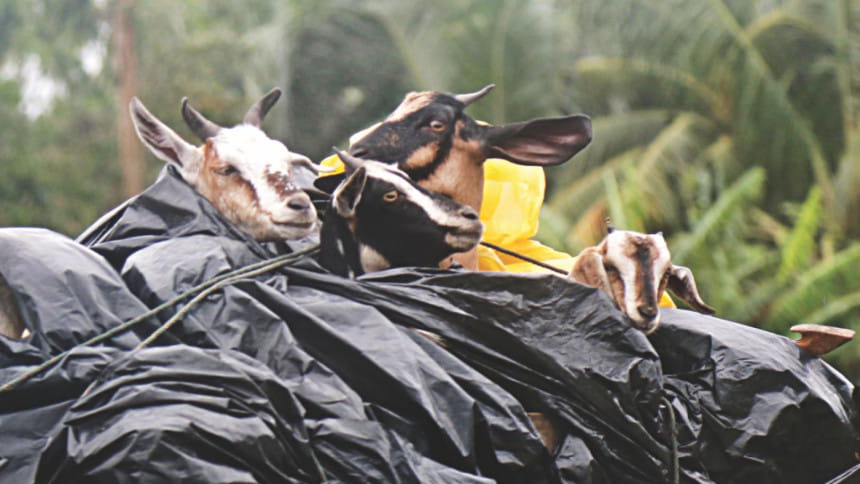
“I was staying home to look after my house as the storm did not seem strong. But around 9:00am, the tin roof of my neighbour's house blew away and landed 200 feet away in a field,” Abdun Nur of Samitir Hat area of Cox's Bazar told The Daily Star.
Cox's Bazar DC Hossain said around 20,000 houses were damaged by the storm. More accurate estimate on damage would be known after two days. The district has decided to distribute 110 tonnes of rice, Tk 9 lakh and other relief materials to the affected in its eight upazilas.
BNP Chairperson Khaleda Zia in a statement yesterday alleged that the government had failed to mobilise relief work to a mentionable level. She demanded that the government take immediate measures to send relief goods to the affected people and urged the affluent section of society to extend their helping hands.
Power supply to Chittagong and the hill tract regions -- Khagrachhari, Rangamati, Bandarban, and Cox's Bazar -- was out since morning, said Md Moniruzzaman, senior assistant public relation officer of Power Development Board (south).
Barisal and Khulna regions experienced almost no affect of the cyclone, apart from some light rain and breeze.
Even the island district of Bhola was not affected by any storm surges, said Sahabuddin Mia, deputy director of Cyclone Preparatory Programme (CPP) in Bhola.
“OVERZEALOUS SIGNALLING?”
Even though the Met office issued a “great danger signal”, the cyclone was not as strong. This might encourage people of the coasts not to trust future signals, said locals.
In a char of Cox's Bazar with 14,000 inhabitants, only 130 went to the cyclone shelter as the locals did not want to believe that it would be a strong cyclone.
"This time locals were not convinced that it would be a big cyclone when the met office issued great danger signal 10," said Rezaul Karim Chowdhury, executive director of Coast Trust, an NGO.
Most stayed home and observed the weather.
People in general do not want to go to cyclone shelters. And if signals do not match the reality, more would start not to trust cautionary signals, locals said.
When asked if the Met office issued a great danger signal for a weak storm, Shamsuddin Ahmed, director Dhaka Met office, said, "Our forecast was based on satellite image and analysing the track of the cyclone. There is no scope of guessing in our work."
According to the met office, “great danger signal 10” means, “The port will experience severe weather from a storm of great intensity (wind
speed of 89 kms/hour or more) that is expected to cross over or near the port.”
Our correspondents in Chittagong, Barisal, and Rangamati contributed to this report.

 For all latest news, follow The Daily Star's Google News channel.
For all latest news, follow The Daily Star's Google News channel. 


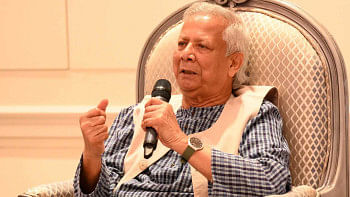
Comments